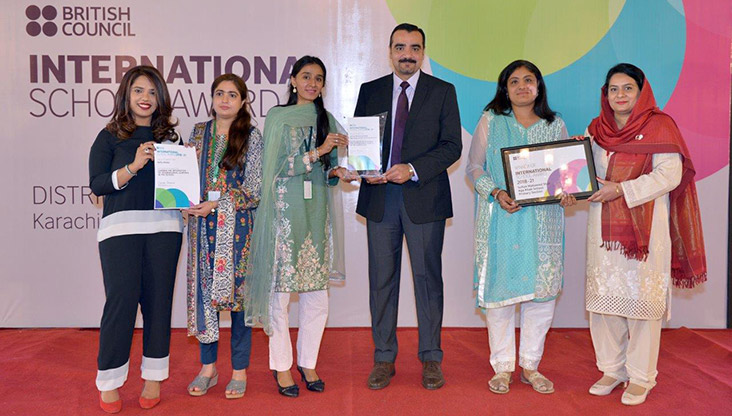Scaling the Learning Curve
It is easy to forget that for teachers to be good educators, they need to be learning just like their students. Not just about their own subjects, but also about evolving pedagogies and how teaching is practiced across the globe.
This is exactly the opportunity the British Council’s International School Award (ISA) provides schools and teachers. By becoming a part of the ISA, schools enter into collaborative projects with educational institutions worldwide. Teachers help their students engage in projects on the themes of global citizenship, conflict resolution, diversity, human rights, interdependence, social justice, and sustainable development with different schools. By communicating with their peers in other countries, students learn about the global context of their local lives, and about the history and cultures of their new friends. And by working with their international colleagues — often across multiple time zones — teachers also acquire a fresh perspective on their vocation.
“Earlier I was teaching according to the pedagogies which I’ve learned from books and my own experiences,” says the ISA coordinator for the Sultan Mahomed Shah Aga Khan School, Secondary Section, Ms. Fatima. “My experience was limited to my own school and country. But when I came into contact with schools from other countries, I came to know how differently they are teaching. As a result, I’ve learned new pedagogies and techniques to implement various activities.”
Sultan Mahomed Shah Aga Khan School is one of the five Aga Khan Education Service, Pakistan (AKES,P) schools to win the International School Award this year. The others were Aga Khan School, Kharadhar, Aga Khan School, Garden, Aga Khan School, Hafizabad, and Aga Khan School, Mirpur Sakro. They all received the winning shield, plaque and certificates as International Schools at the ISA ceremony hosted by the British Council Pakistan.
The five AKES,P schools were amongst the 31 schools from Sindh and Punjab provinces of Pakistan that emerged winners out of 481 participants. The duration of the ISA certification is 3 years, and the award provides schools with the opportunity to collaborate with peer schools on international learning activities.
The International School Award acknowledges school collaboration nationally and internationally and provides a framework for recognising schools that champion international work, benchmark best practices and work on collaborative curriculum projects with partner schools.

